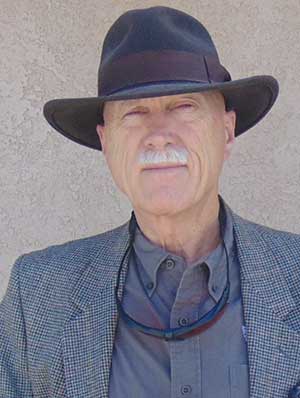Opinion

Arizona -(Ammoland.com)- On Sunday, on 14 January, 2018, a bit after 8 A.M., Alexander Weiss was on his way to officiate a basketball game in Rochester, Minnesota. The streets were slippery. Weiss saw another car spin out of control. He stopped to see if they needed assistance.
It turned out he occupants of the care were teenagers who were using illegal drugs. The car had been deliberately put into a “spin” for kicks. The driver of the car which had spun out backed up and hit Weiss car. The two male 17-year-olds got out of their car and acted aggressively toward Weiss. Weiss had a bumper sticker on his car that said “GUN CONTROL IS HITTING YOUR TARGET”. I wrote about it in 2018.
Weiss retrieved his phone and a 9mm pistol, for which he had a carry permit, and warned the aggressive teens he was armed. At some point, it appears one of the teens spit on Weiss. Weiss said Muhammed Rahim pushed him and tried to grab his pistol. Weiss shot Muhammed and immediately called the police. There is some limited surveillance video of the event. Muhammed was an immigrant from Iraq who came to the U.S. six years earlier. The case went to trial.
The bumper sticker was brought up in the trial.
The Jury was unable to reach a unanimous verdict, and a mistrail was declared. That was in June of 2019. The prosecution decided to re-try Weiss. They did so. On 22 October of 2019, another mistrial was declared, after the jury could not reach a unanimous decision. From myfox47.com:
ROCHESTER, Minn. (FOX 47) — On Tuesday, the jury for the Alexander Weiss case couldn’t reach a verdict, forcing Judge Joseph Chase to declare a second mistrial, turning this into a complicated process.
FOX 47 talked to Meshbesher and Spence Law Partner, Zach Bauer, a legal expert, independent from the case, to talk about what this means and what could be coming next.
He says in his experience, it would be rare and uncommon to see a case tried more than three times, but the future of the case is now in the hands of the prosecutor, whether they want to go through a third trial.
“There’s really no limits to the amount of times it can be retried,” said Zach Bauer.
Multiple trials are devastating to a defendant. They have to repeatedly pony up the expenses of a trial, over and over. The bumper sticker was brought up again at this trial.
Commenters about the case are split about the verdict as well, which explains the jury having a difficult time in reaching a unanimous verdict. It is unknown if the prosecution will seek a third trial. There has already been much punishment by the process.
One thing that played prominently in discussions of the trial and situation was that Weiss returned to his car to retrieve his phone and 9mm. It appears his actions would have been considered more justifiable in Minnesota if he had not returned to retrieve his phone and 9mm.
That element of thos case is a good reason to have your defensive firearms secured on your person at all times.
Several commentators observed that if Minnesota were a “Stand Your Ground” state, the trial would likely never have taken place.
Could Alexander Weiss have de-escalated? Should he have? It is not clear.
One thing is almost certain, Alexander Weiss wishes he had never stopped to try to help someone in distress. In this case, they did not want or need his help, and had deliberately precipitated the events he witnessed.
In the first trial, the surviving male witness testified for the prosecution. His testimony did not go well for the prosecution. In the second trial, the same man was forced to testify for the defense.
We will see if the Rochester prosecutor decides to conduct a third trial.

About Dean Weingarten:
Dean Weingarten has been a peace officer, a military officer, was on the University of Wisconsin Pistol Team for four years, and was first certified to teach firearms safety in 1973. He taught the Arizona concealed carry course for fifteen years until the goal of constitutional carry was attained. He has degrees in meteorology and mining engineering, and recently retired from the Department of Defense after a 30 year career in Army Research, Development, Testing, and Evaluation.
